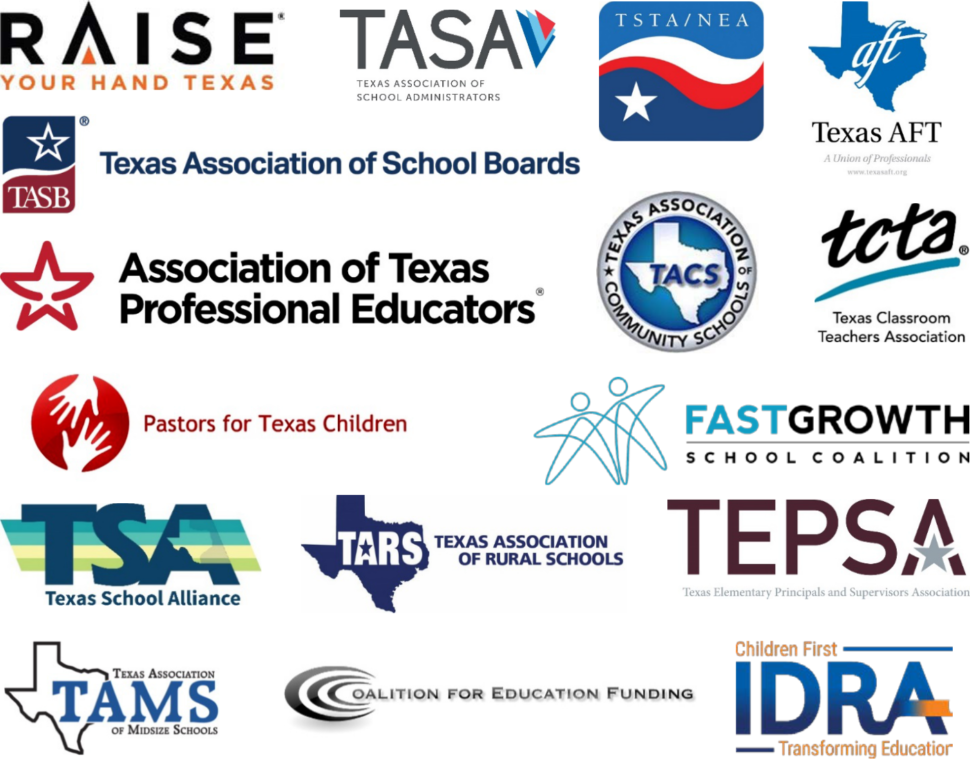IDRA and 15 other organizations submitted the following recommendations to the Texas Education Agency regarding implementation of SB 2293 (86th Legislature) common charter application and charter waiting list, October 18, 2019
The sixteen education organizations listed on the following page are writing with regard to implementation of the “common application” and “waiting list” provisions of SB 2293 that was passed during the 86th Legislative session. For many years, policymakers have struggled with conflicting accounts of charter “wait lists” and admissions practices. This legislation was adopted to bring greater transparency and efficiency to the charter application process and to provide accurate data to the state, policymakers, and the public about the demand for and accessibility of these programs. Our organizations supported SB 2293 as it advanced, and we are pleased to offer our continued support to the agency as it implements the provisions of the bill.
We encourage the agency to make the common application an online process at TEA which allows a parent to apply to multiple charter schools with one uniform application. Our organizations believe this will enable the agency to easily collect individual data as required by TEC section 12.1174(a)(3) and will ensure that a parent is not required to fill out multiple applications with differing requirements. After a student application is matched with a charter campus that has capacity, a further enrollment process can respond to school-specific procedures such as the performing arts audition authorized by TEC section 12.1171.
We emphasize that during the initial application stage, a parent should not be required to provide information beyond the grade level of their child, proof of residency in the charter’s service area, and information that allows the agency to identify a student previously enrolled in Texas public schools. A parent should never be required to disclose information regarding their child’s special education status, disciplinary history, grades, or standardized test scores prior to enrollment or a lottery process, should one be required. To ensure equitable access for all students, we urge the Commissioner to utilize his authority to promulgate procedures for charter school lotteries by extending that prohibition until a student is accepted by the lottery process and ready to enroll at a specific charter campus.
A provision of SB 2293 requires the reporting of students placed on waiting lists for charter school enrollment and a comprehensive compilation of those students statewide. We anticipate that the agency will collect information on both facility (campus) capacity, and the individual students applying, including the grade level a parent intends to enroll their child. If students are on a wait list but the facility has capacity at that grade level, it should be disclosed. Each charter holder and its affiliated charter schools should have a complete waiting list of unique names that eliminates multiple applications to different campuses operated by the charter holder to provide a realistic view of the demand for those services.
Finally, a statewide waiting list should sum the charter holder lists by eliminating duplicate applications (from different charter holders) and students already enrolled in charter schools across the state to provide an accurate picture of the unique number of students seeking enrollment in charter schools, including accurate numbers by charter holder. The statewide list should also include the maximum approved enrollment for each charter holder and for the state as a whole based on the original charter application or the most recently approved charter amendment. We also recommend that the agency adopt uniform requirements for waiting lists, including a requirement that a student be removed from a list after an enrollment period has concluded, or after a student has progressed beyond the grade levels offered by the campus the student applied to.
In addition, we ask that the individual student data from the application process be maintained and made available in a de-identified manner to the Education Research Centers as part of the routine collection and maintenance of student data. Our organizations concur that the characteristics of students applying to and enrolling in charter schools will be of interest to policymakers and the agency, particularly the experience of parents of students with disabilities. Collecting and retaining transparent information about the characteristics of students who apply to and ultimately enroll in charter schools is vitally important.
The agency has many tasks from the 86th Legislative session, but the common application process and waiting list are important ones in which our organizations are interested. We hope you will include us in any discussions with stakeholders before proposing rules to implement the common application as required by SB 2293.
The following organizations endorse these recommendations:




